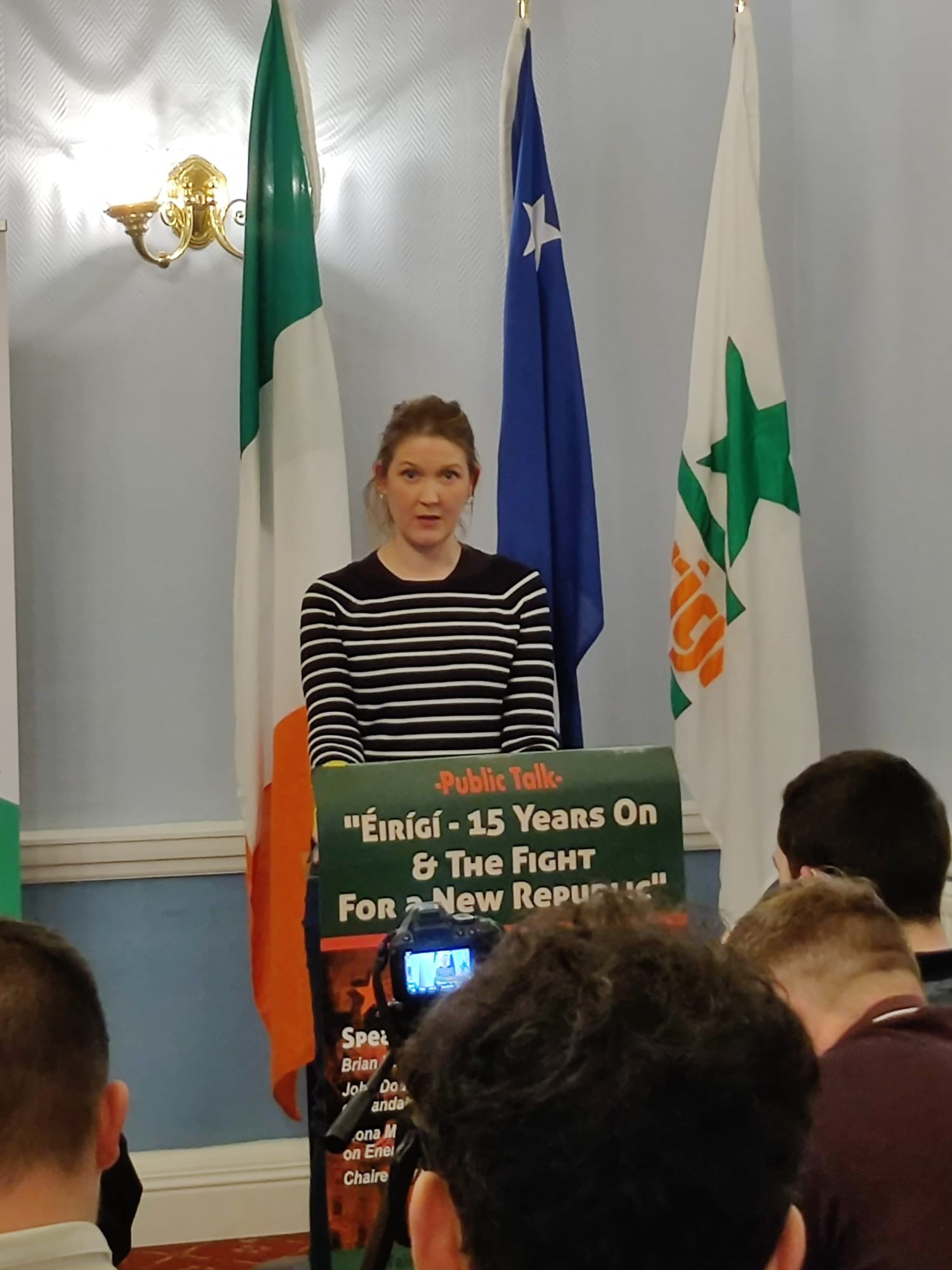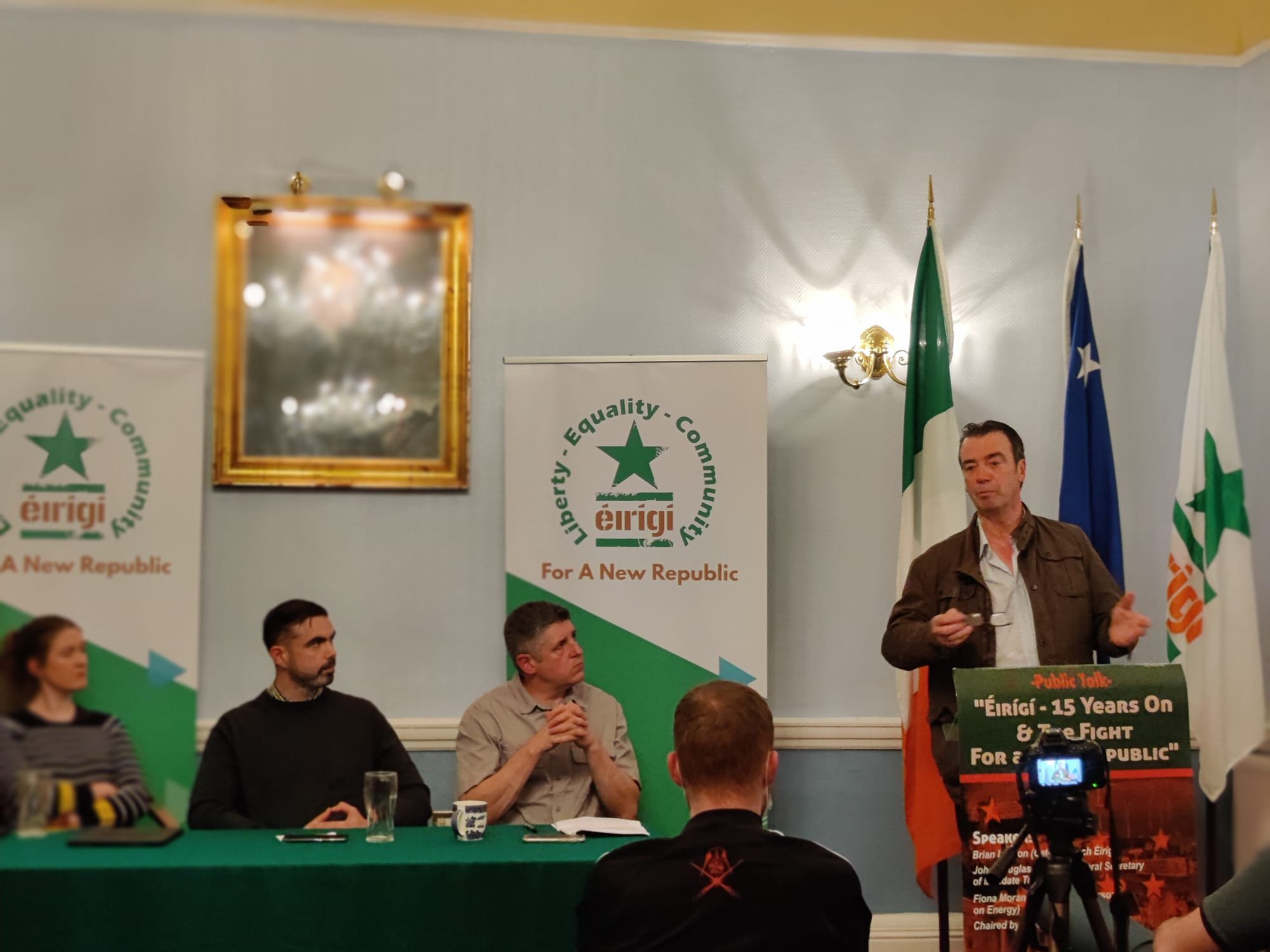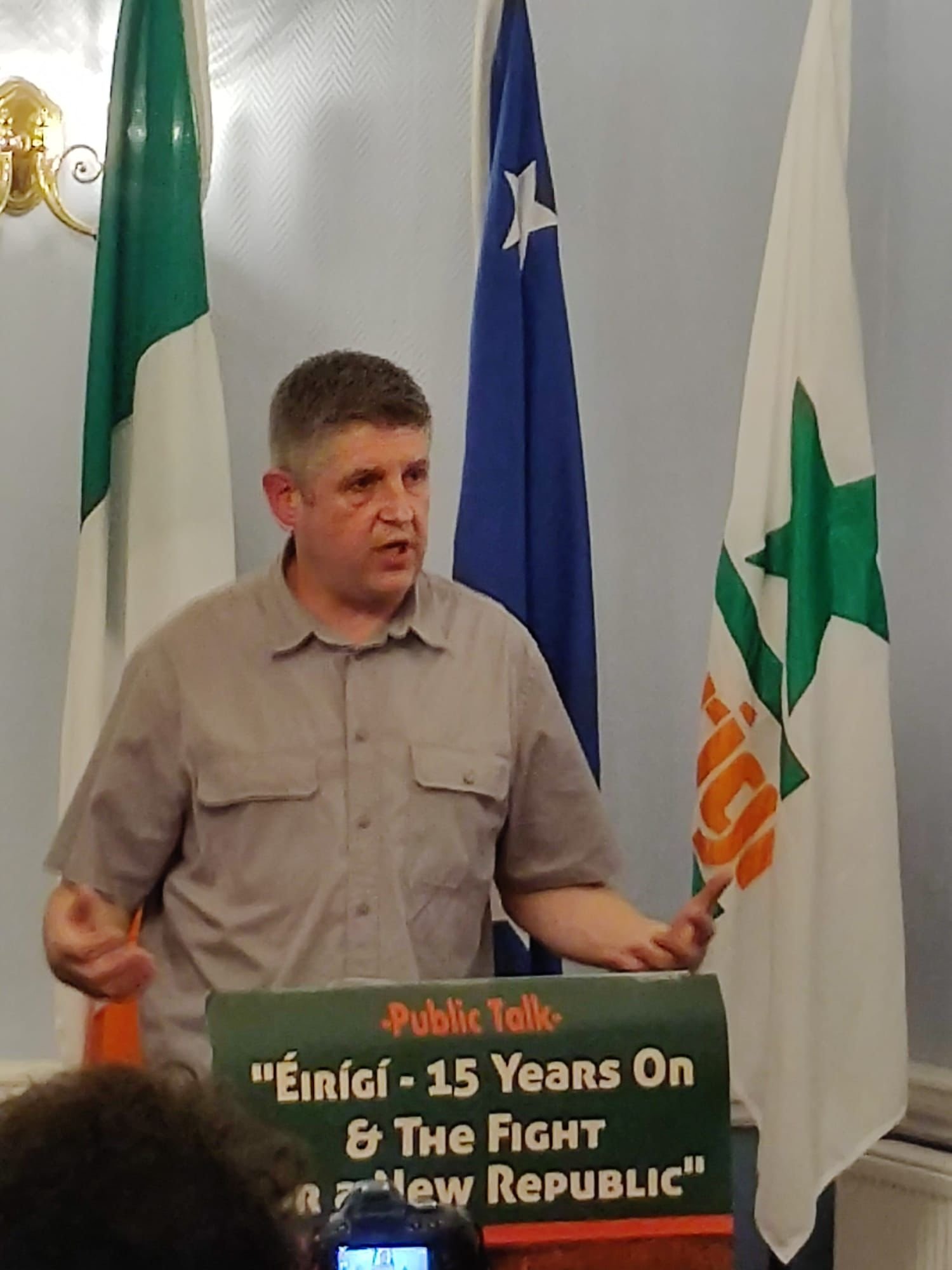Éirígí Marks 15th Anniversary With Successful Public Meeting & Renewed Commitment To Building A New Republic
Éirígí For A New Republic held a successful public meeting on Saturday last (November 13) to mark the 15th anniversary of the establishment of the party in April 2006. The anniversary event, delayed from April due to Covid-related restrictions, took place in The Teachers Club in Dublin City Centre.
As the first large Éirígí indoor meeting in almost two years, it was also the first opportunity for newer party members from Galway, Dublin, Wexford, Armagh, Westmeath, Roscommon, Limerick and elsewhere to meet longer-standing party members in a real-world setting for the first time.
Fiona Moran, Éirígí Energy spokesperson was the first of three speakers
The meeting was chaired by Éirígí General Secretary, Mickey Moran, stepping in for Breandán MacCionnaith who was unable to attend due to family commitments. Moran opened the meeting by welcoming attendees and explaining the reasons for event and the format that it would take.
The first of three speakers was Fiona Moran, the recently appointed Éirígí Energy spokesperson. In the opening section of her contribution, she identified the multi-layered nature of the threat that capitalist-driven human activity poses to the global natural environment - threats that include mass species extinction, desertification, deforestation and climate change.
Moran went on to identify how publicly-owned renewable energy - wind energy in particular - offers Ireland a route to not only lower carbon emissions, but also greater energy independence and low cost energy for all. Questions and comments were then taken from the floor.
John Douglas, former General Secretary of MANDATE addressing the meeting
The second speaker of the day was John Douglas, the former General Secretary of MANDATE. As a socialist republican with decades of experience of the Irish trade union movement, Douglas is perhaps uniquely qualified to identify the strengths and weaknesses of that movement from a revolutionary republican perspective.
During his talk Douglas first gave a broad overview of the current state of the Irish workplace, including the creeping spread of low-pay into new sectors of the economy and the union-busting tactics deployed by US multinationals and their Irish allies.
Douglas then outlined some of the first progressive steps that a New Republic would take to improve workers lives, steps such as the abolition of the 1990 Industrial Act, the introduction of a genuine living wage and an end to anti-union / anti-worker practices. Following his speech, Douglas took questions from the floor.
The final speaker to address the meeting was Cathaoirleach Éirígí Brian Leeson who divided his speech into two parts. The first was focused on the significant contribution that Éirígí has made to Irish politics since its foundation in 2006 - a contribution that spans both theory and practice - of analysis and real-world campaigns.
To illustrate the breadth of that contribution, Leeson highlighting some of the key campaigns and key events of the last fifteen years including the battle to defend the Corrib Gas Field from privatisation (2006-2015), opposing a major British military parade in Belfast (2008) and the state visit of the British ‘queen’ (2011), opposing the bank bailout / NAMA / austerity, resisting the privatisation of Ireland’s water resources (2012 onwards), supporting Yes votes for same sex marriage (2015) and abortion rights (2018) and fighting for housing justice (2016 onwards).
Other key areas of activism include support for the restoration of the Irish language as an everyday language of the people and offering international support to oppressed peoples around the globe.
The second part of Leeson’s speech focused on the future, on the battle for a New Republic, on the need for the two failed states on this island to fall before a new all-Ireland state could rise - on the need for a New Republic to be built on a deep foundation of equality and a democratically controlled economy.
In closing Leeson recommitted Éirígí to the 230-year-old republican struggle and encouraged those in the room to play their part in building Éirígí so that it in turn could build a movement that will deliver a New Republic.




